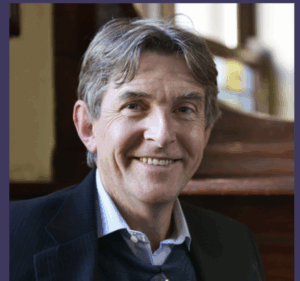Sea view

From the car-ferry to Ireland.
Quote of the Day
”If you want to know what God thinks about money, just look at the people He gives it to.”
Musical alternative to the morning’s radio news
Jelly Roll Blues | Jelly Roll Morton’s Red Hot Peppers
Link
It’s the original 1926 recording, I think.
Long Read of the Day
A U.S. Citizen Detained by ICE for Three Days Tells His Story
If you want a visceral understanding of what’s happening in the US, then this piece (Gift Article) by Conor Friedersdorf in The Atlantic does a pretty good job. It describes what happened to George Retes, a 25-year-old US Army veteran, when he ran into an ICE detachment at his workplace in California.
Friedersdorf: They were raiding your workplace. Were there signs or instructions on what to do?
Retes: Nothing. So I pull up a good distance away. I put my car in park. I get out. I say, I’m a U.S. citizen. I’m just trying to get to work. I have a job just like you guys. I have a family to feed. I got bills to pay. I’m not here to fight you guys. I’m not part of the protest. I’m literally just trying to get to work. They didn’t care and immediately got hostile. No one seemed to be in charge. Just all of them yelling at once.
Yelling what?
They were all yelling different things: Work is closed. You’re not going to work today. Get the fuck out of here. Leave, get back in your car. Pull over to the side. And then they started walking toward me in a line. I didn’t want to escalate. I wasn’t there to argue or to fight them. So I decided to get back in my car. I didn’t want any conflict. They surrounded my car. I’m telling them, “I’m leaving.” I’m trying to leave. And agents are banging on my driver’s- and passenger’s-side windows. Agents in front are telling me to reverse, pull over to the side, while other agents are trying to open my door and telling me to do something completely different, contradicting each other. I reversed out of the lane I was in to get out of the way. Then they let a bunch of their vehicles pass by.
How did the arrest happen?
They re-approached my car. I don’t know why they decided to re-approach, but they end up throwing tear gas behind my car. Now I’m kinda just trapped there, with tear gas filling up my car, choking. They’re banging on my window, telling me to reverse again, and I’m trying to tell them, How do you expect me to reverse when I can’t see? You hear me coughing. They just weren’t listening; they were still telling me to reverse, still trying to pull my car door open, still contradicting each other. Then one of the agents shatters my driver’s-side window, and another agent sticks his arm through it and immediately pepper-sprays me in the face. They dragged me out of the car. They threw me on the ground. An agent kneels on my back; another kneels on my neck. Others stand around and watch, as if I’m resisting or whatnot, but I wasn’t. I was trying to comply…
Read on.
An Afterthought
When, after January 20, Trump started to behave like an absolute monarch and I began to think about the 1930s and the rise of Hitler, friends objected that such comparisons were facile. For one thing, Hitler had what was effectively a private army — the Sturmabteilung (SA), a paramilitary wing of the Nazi Party which: protected his rallies; disrupted meetings of political opponents; intimidated rivals — especially communists, socialists, and trade unionists; and engaged in violent street confrontations which heightened a climate of fear.
But Trump didn’t have an equivalent force, they said. Well, guess what? ICE now has the biggest budget of any law enforcement agency in America. “ICE and Customs and Border Protection have long been the most rogue, kind of renegade and certainly pro-Trump police agencies in the federal government,” says Radley Balko, a journalist who’s covered US policing for decades. “What I think we are seeing right now is Trump attempting to build his own paramilitary force. They want people whose first, ultimate loyalty in this job is going to be to the president.”
AI’s punctuation is only human
My latest Observer column:
Do you have an em dash problem? No? Lucky you. I do and, until the other day, I didn’t even know it was a problem. What is an em dash, you ask? Sorry, I should have explained. It’s a punctuation mark that’s roughly the width of the letter “m” (hence the name) and I use it quite a lot because it’s very versatile. I can use it sometimes to avoid putting explanatory text in brackets, for example. On occasion, it can stand in for commas. And it’s less pompous than putting in a colon before listing a number of things that I want to include in a sentence.
So why is it a problem? Well, it turns out that large language models (LLMs) – which at the moment is the term often used as a proxy for AI – seem to be very fond of em dashes. And some eagle-eyed scrutineers have noticed that their proliferation seems to be closely correlated with the arrival and use of LLMs such as ChatGPT, Claude, Gemini et al…
Read on
Conor, RIP

Conor Gearty, one of my dearest friends, died suddenly and unexpectedly a few days ago. He was a fellow-Irishman, a fellow-emigré, a brilliant academic lawyer (FBA since 2010), a practising barrister (K.C.), a warm and supportive family friend, a great liberal, reforming European, a formidable debater — and the best companion imaginable for a boozy, gossipy lunch in a London club. His passing opens a devastating hole not just in my life but in many others. It’s so, so painful suddenly to have to write about such a vibrant presence in the past tense when I’d had been saving up things to talk about with him in our next phone call. May he Rest in Peace. And I hope that St Peter is already prepping for the cross-examination he will be undergoing when Conor arrives at the pearly gates.
My commonplace booklet
From Austin Kleon’s interview with photographer Sally Mann…

Her answer:
My young friends are more than spies–they are my Virgilian guides through these purgatorial times. They offer me hope for the future; so smart and canny and kind—when I am with young people, I feel an uncharacteristic surge of optimism.
People my age, the baby boomers, were given everything—post-war prosperity, disease and pregnancy-free sex, great music (imagine listening to the Rolling Stones for the first time!), interest rates so low we bought our first house with a $72.00 a month mortgage payment, and we get to check out just before the planet we have sucker-punched begins to kill the remaining humans.
But when I hang out with you youngsters, I am suffused with joy. I hope to be taken by my wrinkled, quavering arm and led out into the sunshine by my young friends in my (even more) ancient days. Their company is vital to me. (the old cynic, Oscar Wilde, also suggested that we old people be nice to the youngsters because they would be the ones writing about us…but I don’t think that way. I am just glad they tolerate me)
This Blog is also available as an email three days a week. If you think that might suit you better, why not subscribe? One email on Mondays, Wednesdays and Fridays delivered to your inbox at 5am UK time. It’s free, and you can always unsubscribe if you conclude your inbox is full enough already!















